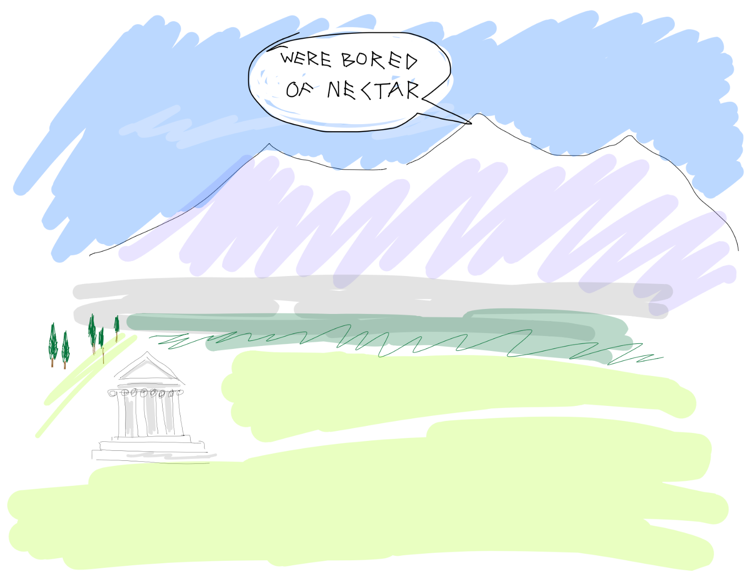
The Olympian Gods and Goddesses on Mount Olympus lived on ambrosia. I've never thought much about what ambrosia was, I just assumed it was some delicious food reserved for deities and denied to mortals, and probably so delightful that the gods could put up with eating it day after day ("Oooh goody, ambrosia again, my favourite.")
However I just found out this diet is what made the gods immortal.
I'm currently reading the wonderful book Words from Hell by the witty and erudite Jess Zafarris, who blogs, writes and makes podcasts about etymology. Reading the origins of the word murder, I was astonished to find the word ambrosia shares a common origin with murder. Whatever is the connection between these two things?
It turns out they are both descended from a root that was something like mer-, which means rub out or harm or die and which appears in many words like mortal and mortuary and so on. It pops up in ancient Greek as ἄμβροτος, ambrotos. The a- means not and mbrotos meant mortal, so the word ambrosia literally meant "not-mortal".
The Greek gods also had a special drink, nectar. This seems to mean essentially the same thing; the Ancient (and modern) Greek νεκροs, necros, means dead or death, and the -tar element is from a root tere which has the sense of through or crossing or overcoming. So nectar helped the gods overcome death and was the perfect drink to have with your ambrosia.
At least if you were an Olympian deity you didn't have to worry about what to have for lunch. This reminds me of an anecdote about the physicist Richard Feynman, who wrote about the problem of choice and said "... when I was a student at MIT. I got sick and tired of having to decide what kind of dessert I was going to have at the restaurant, so I decided it would always be chocolate ice cream, and never worried about it again."